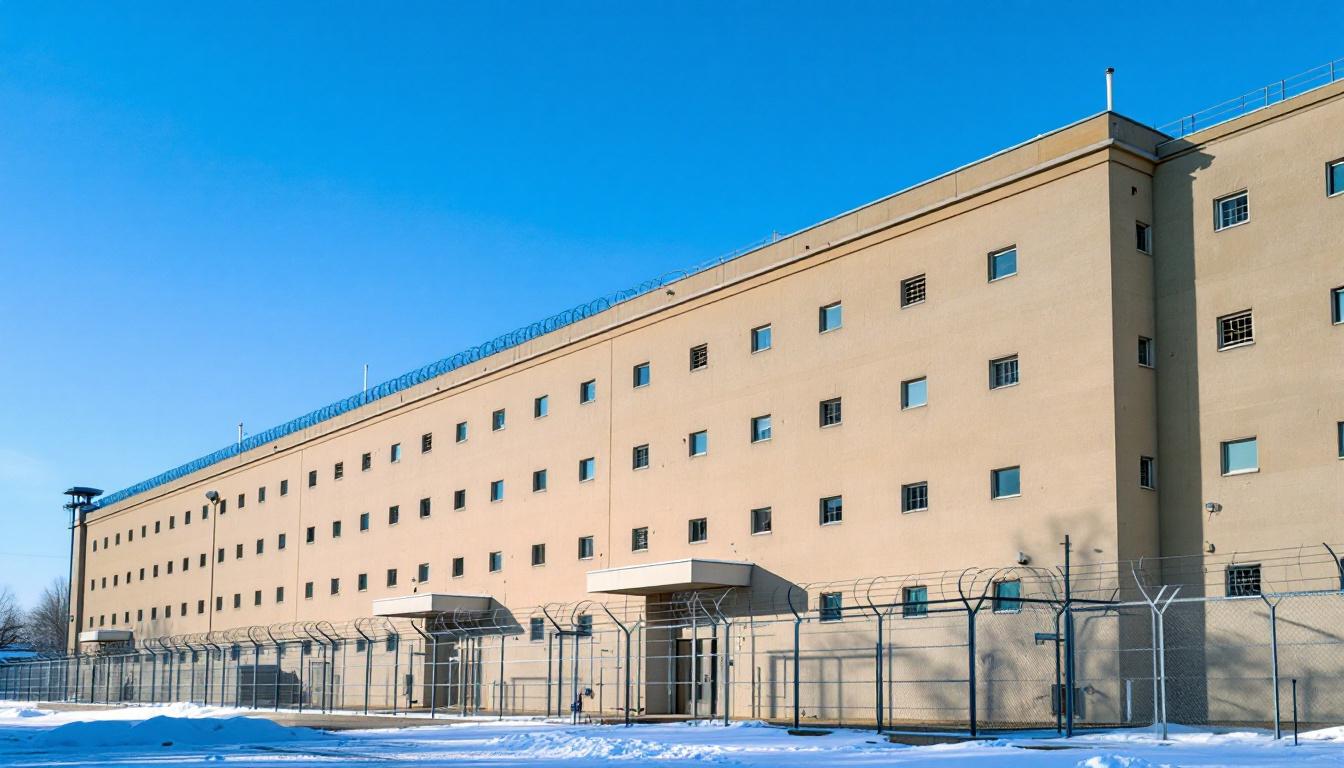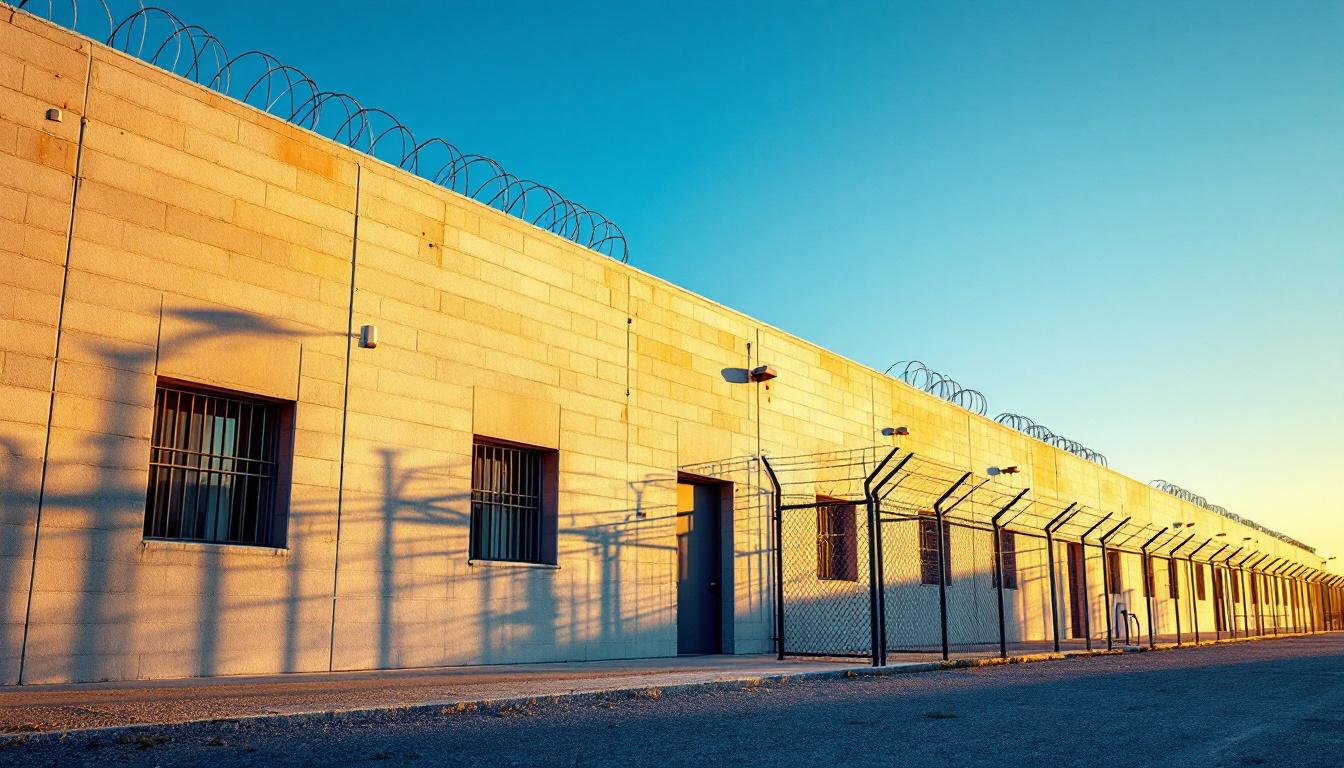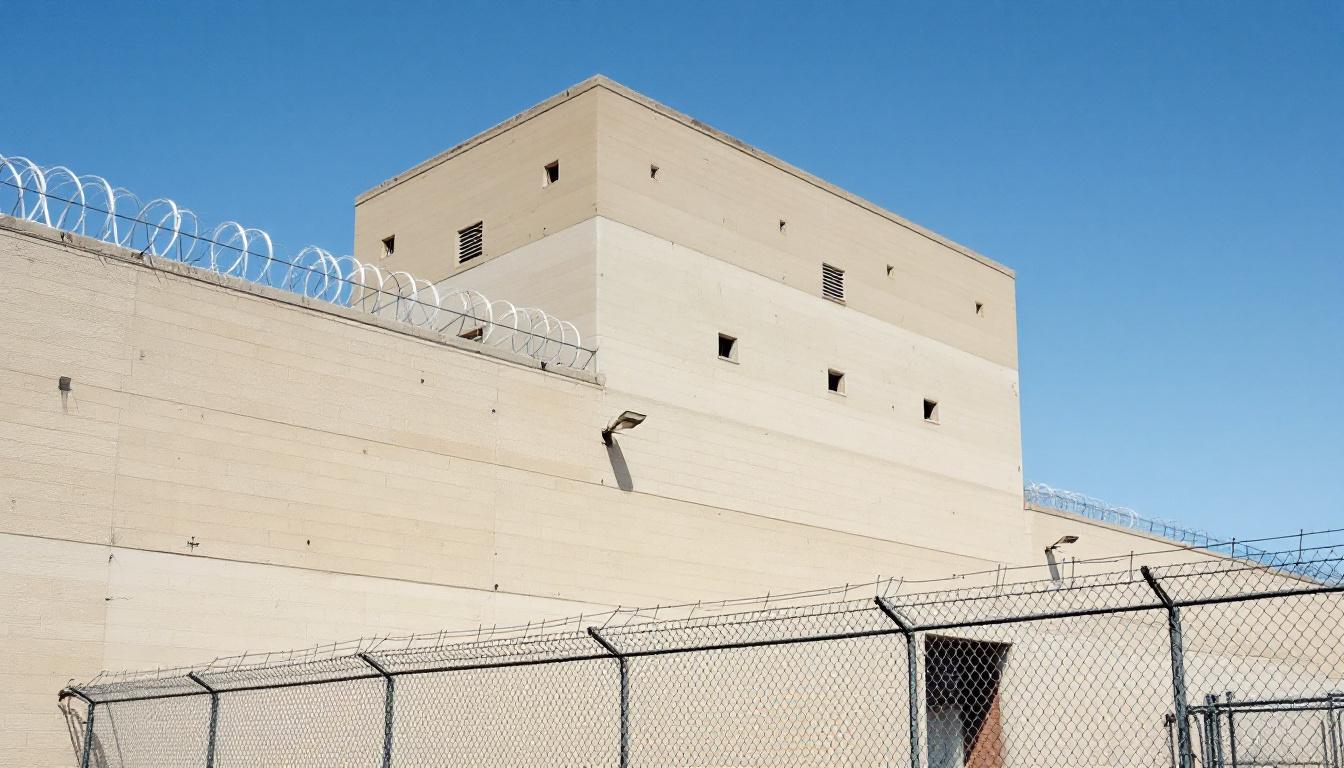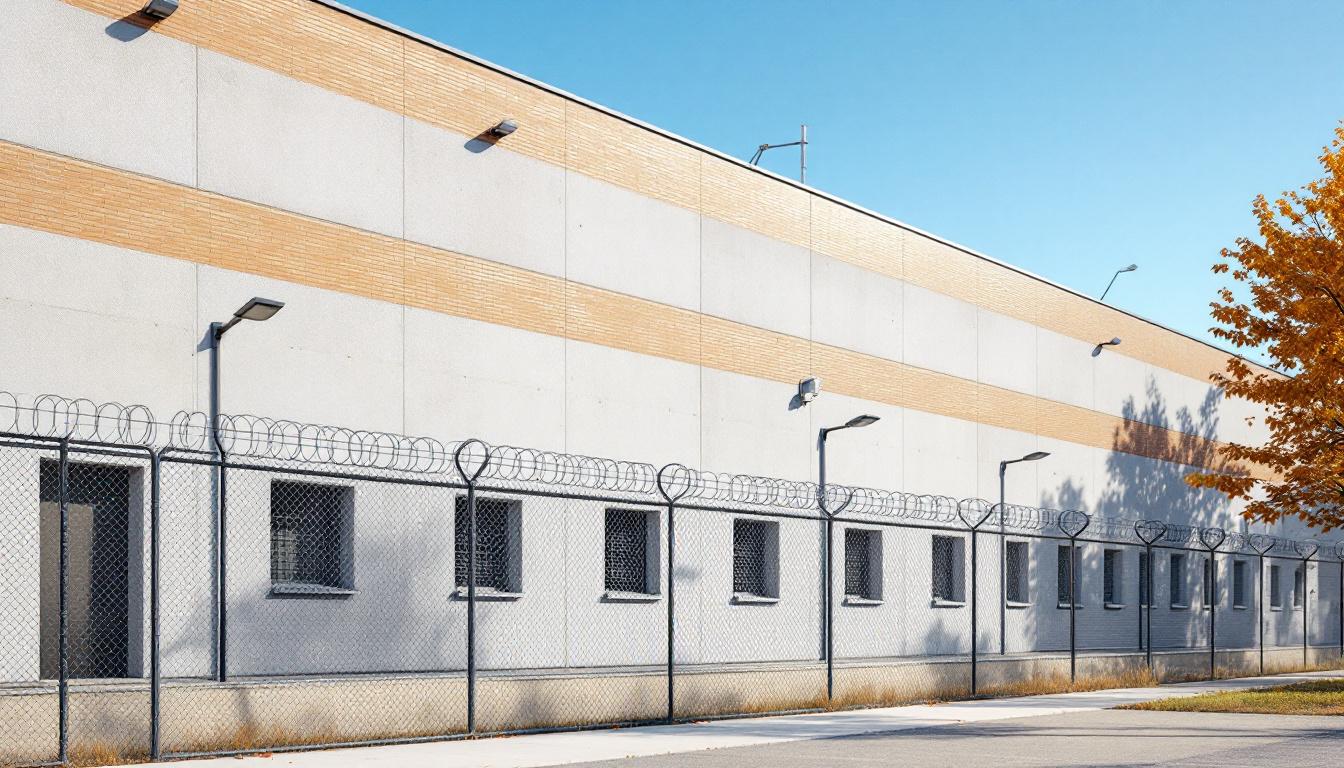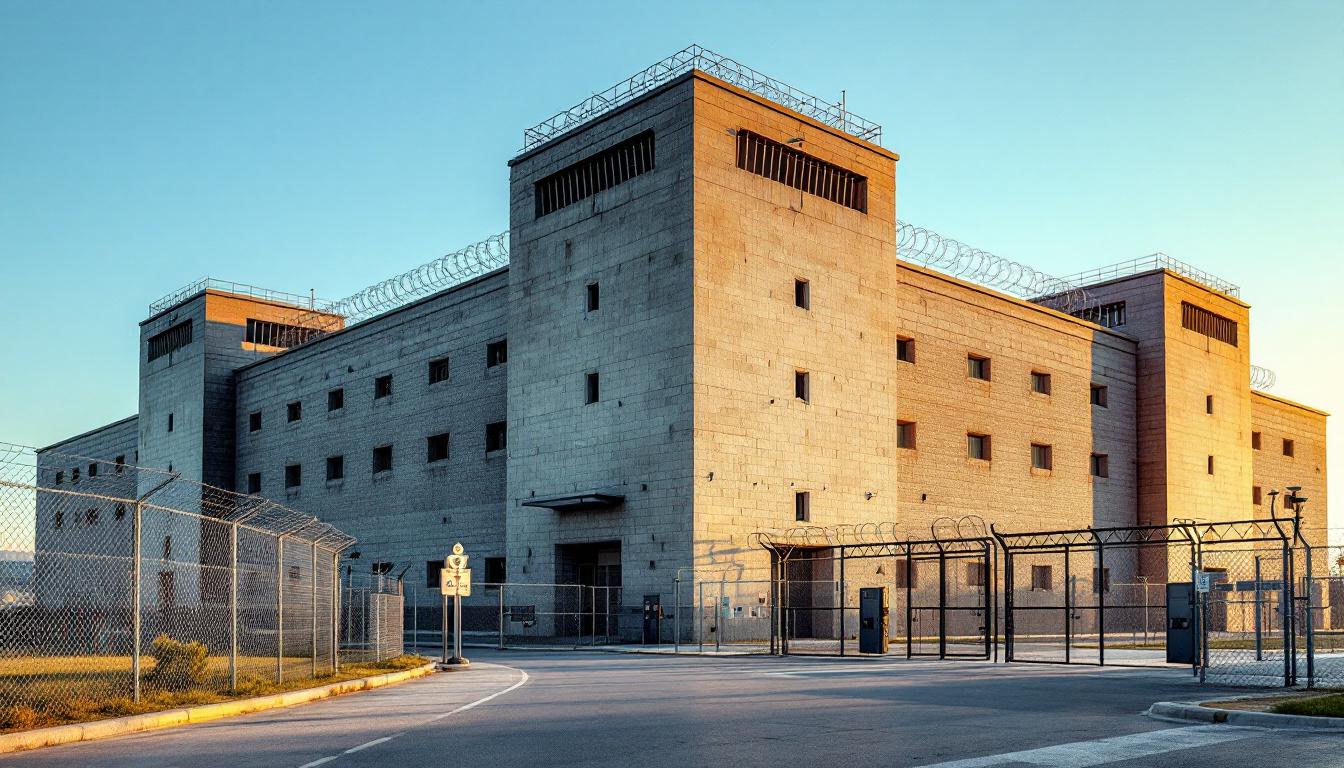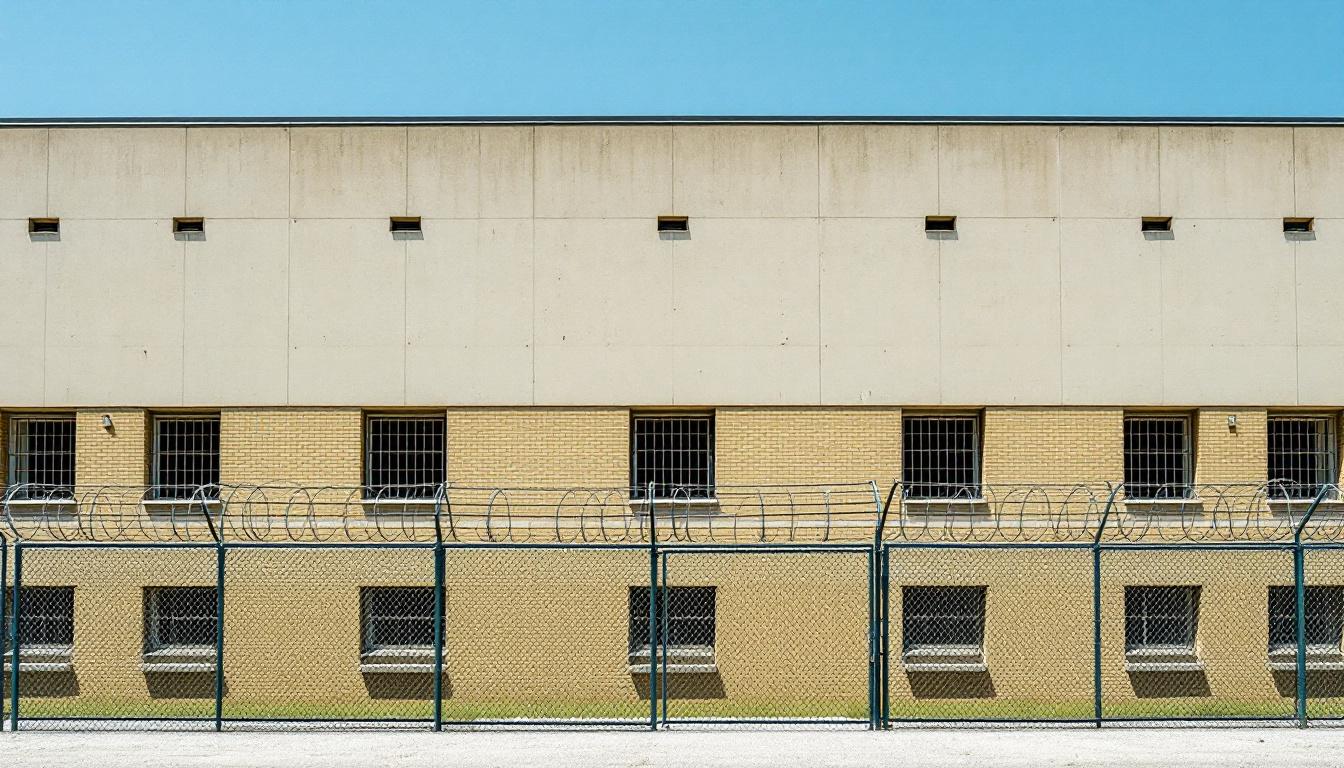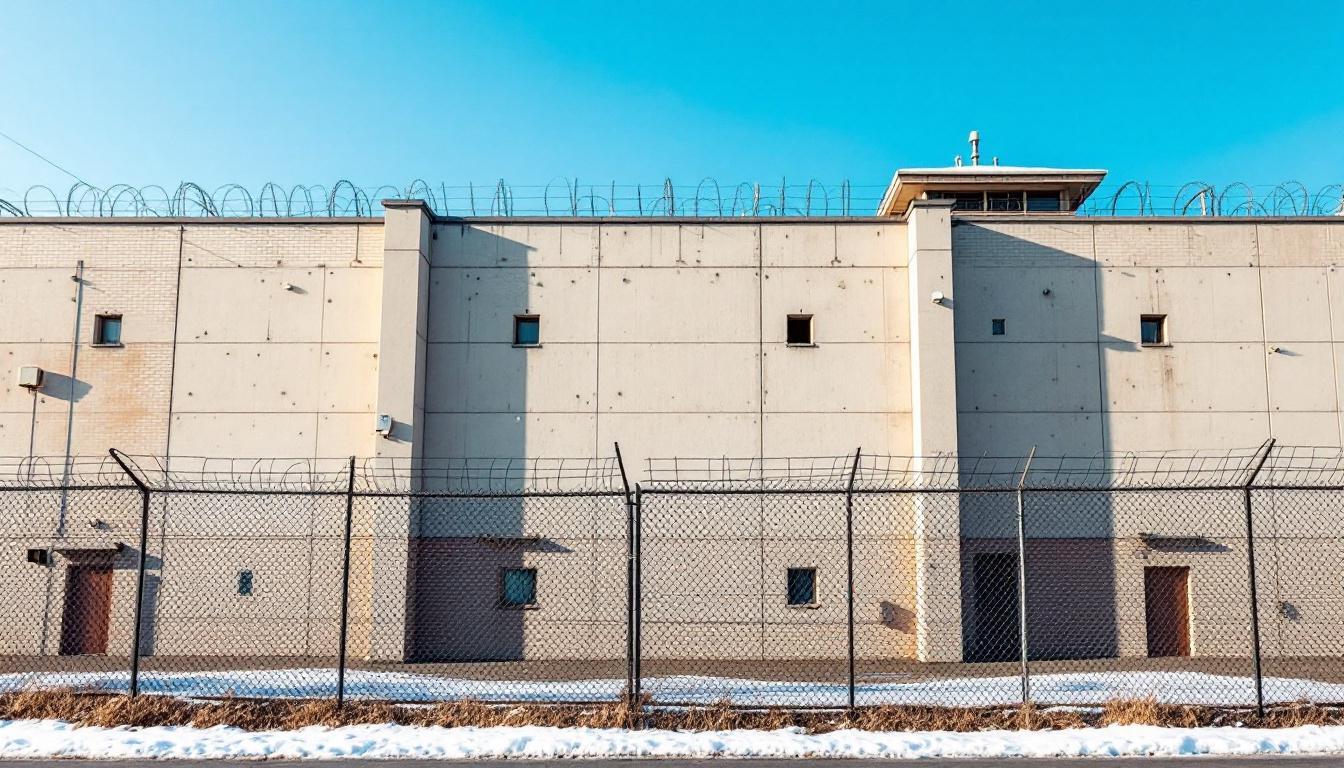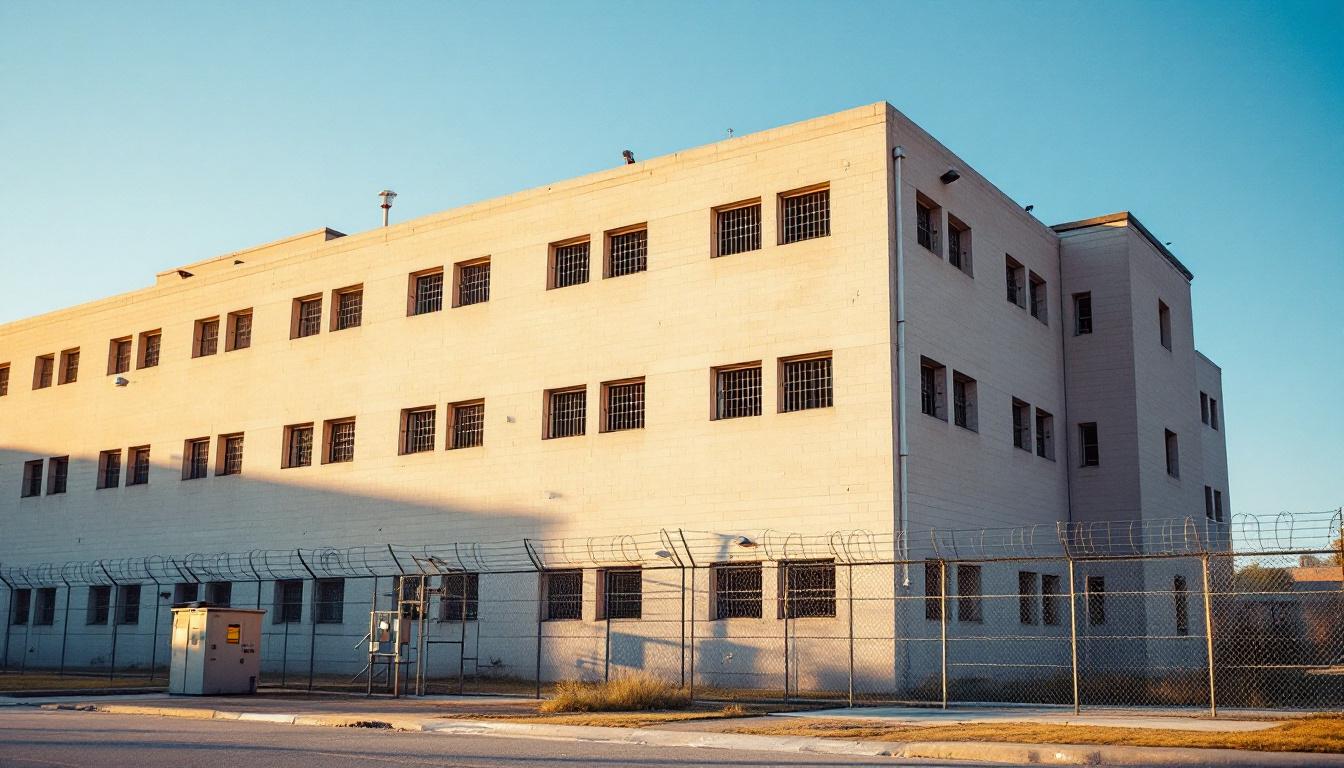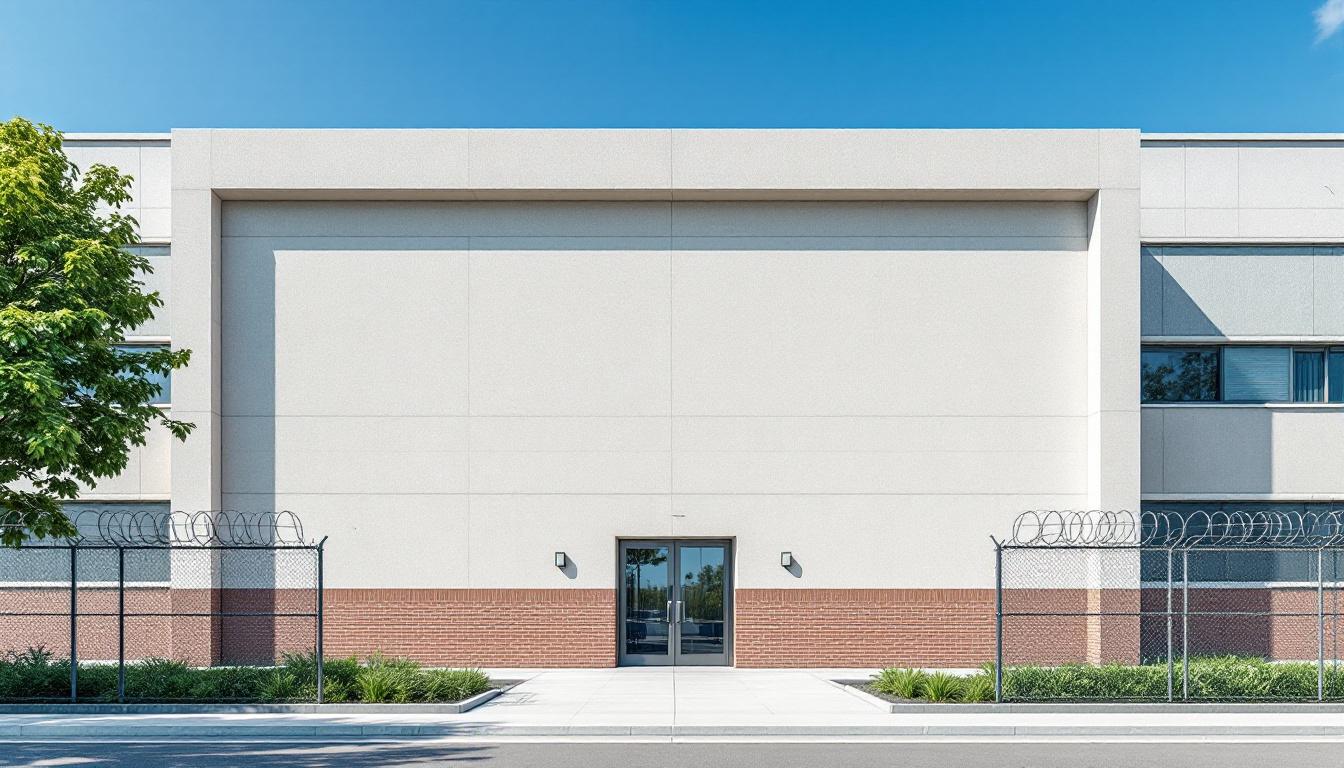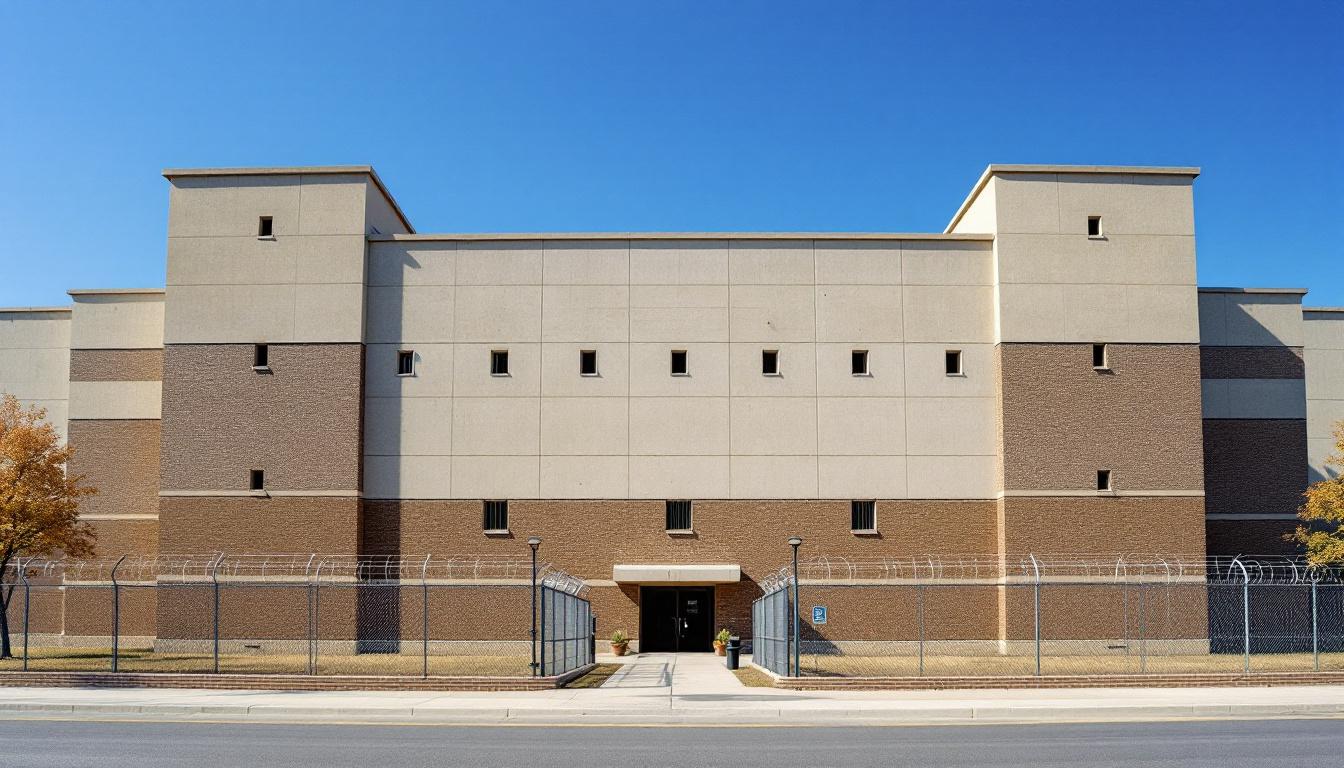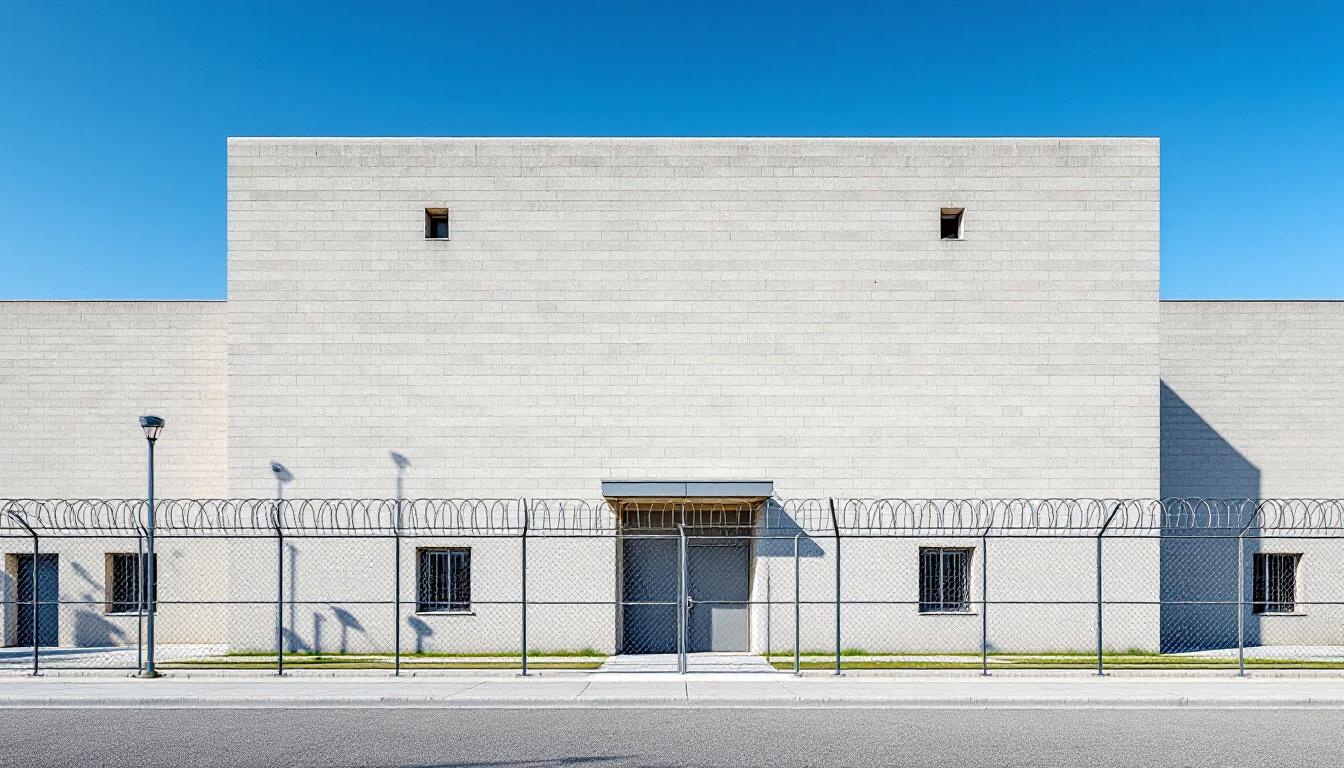
Quick Navigation
How to contact an inmate at Walker County Sheriff Office
This comprehensive guide will walk you through how to connect with an inmate at Walker County Sheriff Office. Follow the steps below to find an inmate and send letters and photos:
- Search for the inmate using our search tool below
- Create your account or log in to Penmate
- Write your message (up to 6,000 characters)
- Send instantly - inmates receive printed copies daily
Find an Inmate
Search for an inmate to start communicating today
Tip: You can search by first name, last name, or inmate ID number
To contact a person at Walker County Sheriff Office start by searching for the person on the official facility website. Perform a search by following these steps:
- Step 1: Enter their first name and last name into the search form and click "Search"
- Step 2: Locate their inmate record
- Step 3: Write down their Inmate ID and any housing information provided
Important! Be sure to enter the person's full name. Nicknames should not be used.
How to Send Messages to Inmates

You can use your phone or computer to send emails, letters, and photos to an inmate. Messages are sent electronically to inmate tablets or kiosks at the facility. If you would like to send a message, start by searching for an inmate at Walker County Sheriff Office.
Sending Photos and Postcards

A great way to send love and support to a loved one at Walker County Sheriff Office is to send photos and postcards. It only takes a few minutes to send photos from your phone and it makes a huge difference. You can also mail postcards with words of support and inspiration, or design your own postcard for special moments like birthdays and holidays.
Important! Be sure not to send any explicit photos or they may not be approved by the facility. You can also use a photo printing app like Penmate to make sure your photos are printed at the correct size (4x6 or 3x5) and are mailed according to the rules and regulations of Walker County Sheriff Office.
Frequently asked questions about Walker County Sheriff Office
-
How long does it take to deliver a message?
If you're sending an email message your letter is usually delivered within 24-48 hours. For messages sent via mail you should expect delivery within 3-7 days. All messages will need be approved by Walker County Sheriff Office.
-
How much does it cost to send a message to Walker County Sheriff Office?
You can send a message free using your phone or mail a message via USPS for the price of a $0.60 stamp and envelope. You can also purchase credits or e-stamps from services starting at $1.99.
-
What services can I use to contact an inmate at Walker County Sheriff Office?
Penmate
You can use Penmate to send letters and photos to an inmate from your phone. It's an easy way to stay in touch during your loved one's incarceration. Use the inmate locator to find an inmate's location and contact information, then you can send messages within a few minutes.
Securus messaging
Securus may be another option for communicating with an inmate at Walker County Sheriff Office. You can create a friends and family account and purchase credits to send messages. All messages will be reviewed and must be approved by the facility.
JPay
Some county jails and state prisons may support sending messages with JPay. You must register an account with the system, find your loved one, and purchase stamps to send messages. For some locations you can also attach photos.
Smart Jail Mail
You may also check if Smart Jail Mail is available at Walker County Sheriff Office. Smart Jail Mail is operated by Smart Communications and has contracted with some state and county jails. After purchasing credits, your messages and photos are sent to the facility, printed out, and then handed out to your loved one.
-
What is the mailing address of Walker County Sheriff Office?
Mailing address:
Walker County Sheriff Office
105 S Duke St
LaFayette, GA 30728
Phone: (706) 638-1909 -
What are the visiting hours at Walker County Sheriff Office?
Visiting hours at Walker County Sheriff Office vary by housing unit and security level. Generally, visits are scheduled on weekends and holidays, with some facilities offering weekday visits. Contact the facility directly at (706) 638-1909 or check their website for the current visiting schedule. Visits typically last 30-60 minutes and must be scheduled in advance.
-
What items are prohibited when sending mail to Walker County Sheriff Office?
Prohibited items typically include: cash, personal checks, stamps, stickers, glitter, glue, tape, staples, paperclips, polaroid photos, musical or blank greeting cards, hardcover books, magazines with staples, and any items containing metal or electronics. Only send letters on plain white paper with blue or black ink. Photos must be printed on regular photo paper (no Polaroids). Always check with Walker County Sheriff Office for their specific mail policies.
-
How do I send money to an inmate at Walker County Sheriff Office?
You can send money to an inmate at Walker County Sheriff Office through several methods: 1) Online using JPay, Access Corrections, or the facility's approved vendor, 2) Money orders mailed directly to the facility with the inmate's name and ID number, 3) Kiosks located in the facility lobby, or 4) Over the phone using a credit or debit card. Fees vary by method, typically ranging from $2.95 to $11.95 per transaction.
-
Can I schedule a video visit with an inmate at Walker County Sheriff Office?
Many facilities now offer video visitation as an alternative to in-person visits. At Walker County Sheriff Office, video visits may be available through services like Penmate, Securus Video Connect, GTL, or ICSolutions. Video visits typically cost $10-20 for 20-30 minutes and must be scheduled in advance. You'll need a computer or smartphone with a camera and reliable internet connection. Contact the facility for their specific video visitation policies and approved vendors.
-
What identification do I need to visit an inmate at Walker County Sheriff Office?
All visitors must present valid government-issued photo identification such as a driver's license, state ID, passport, or military ID. Minors must be accompanied by a parent or legal guardian who can provide the minor's birth certificate. Some facilities require visitors to be on the inmate's approved visitation list, which may require a background check. Contact Walker County Sheriff Office for specific ID requirements and visitor approval procedures.
-
How can I find out an inmate's release date?
To find an inmate's release date at Walker County Sheriff Office, you can: 1) Use the online inmate search tool if available, 2) Call the facility's records department, 3) Contact the inmate's case manager or counselor, or 4) Have the inmate provide this information during a call or visit. For privacy reasons, some facilities only release this information to immediate family members.
Facility Overview
Contact Information
Walker County Sheriff Office105 S Duke St
LaFayette, GA 30728
Phone: (706) 638-1909
Official Website

About Walker County Sheriff Office
Community safety and justice intersect at the heart of northwest Georgia, where Walker County Jail, GA operates as an integral component of the state's broader correctional framework. Serving the LaFayette area and surrounding communities, this GA correctional facility functions within Georgia's comprehensive approach to local detention and rehabilitation services. The facility typically maintains operational standards that align with state correctional goals while addressing the specific needs of Walker County residents, balancing public safety requirements with evidence-based practices that may support successful community reintegration.
Walker County Jail generally emphasizes an operational philosophy centered on structured programming and inmate services that often include educational opportunities, substance abuse counseling, and vocational training components. The facility's approach to corrections typically incorporates both custodial responsibilities and rehabilitative elements, recognizing that effective county jail operations extend beyond simple detention. Staff members generally work to maintain secure environments while facilitating access to resources that may assist individuals in addressing underlying issues contributing to their involvement with the justice system.
Located in LaFayette, the facility serves as a crucial link in Georgia's statewide correctional network, often coordinating with state agencies, local courts, and community organizations to ensure comprehensive case management. The jail's integration with broader state correctional goals typically involves adherence to established protocols for inmate classification, programming delivery, and transition planning. Through this collaborative approach, Walker County Jail may contribute to reducing recidivism rates while supporting the overall effectiveness of Georgia's criminal justice system at the local level.
Programs & Services
Personal growth and skill development form the cornerstone of rehabilitation efforts within Walker County Jail. The facility typically emphasizes building practical abilities and addressing underlying challenges that may contribute to criminal behavior. Through a comprehensive approach to inmate support, the jail often focuses on preparing individuals for successful reintegration into their communities upon release.
Educational services may provide inmates with opportunities to advance their academic credentials and develop essential workplace skills. Education programs often include basic literacy instruction, GED preparation, and continuing education opportunities delivered through structured classroom settings. Moreover, vocational training services typically offer hands-on instruction in practical trades and employment skills. These programs may include specialized training in areas such as upholstery, which can provide inmates with marketable skills for future employment opportunities.
Support services often encompass both spiritual and therapeutic dimensions of personal development. Faith-based services and religious services typically provide inmates with opportunities for spiritual growth and community connection through regular worship, study groups, and pastoral counseling. Moreover, mental health counseling services may address underlying psychological challenges through individual and group therapy sessions. Community service opportunities often allow inmates to contribute positively to local organizations while developing a sense of civic responsibility and personal accomplishment during their incarceration.
Daily Life & Visitation
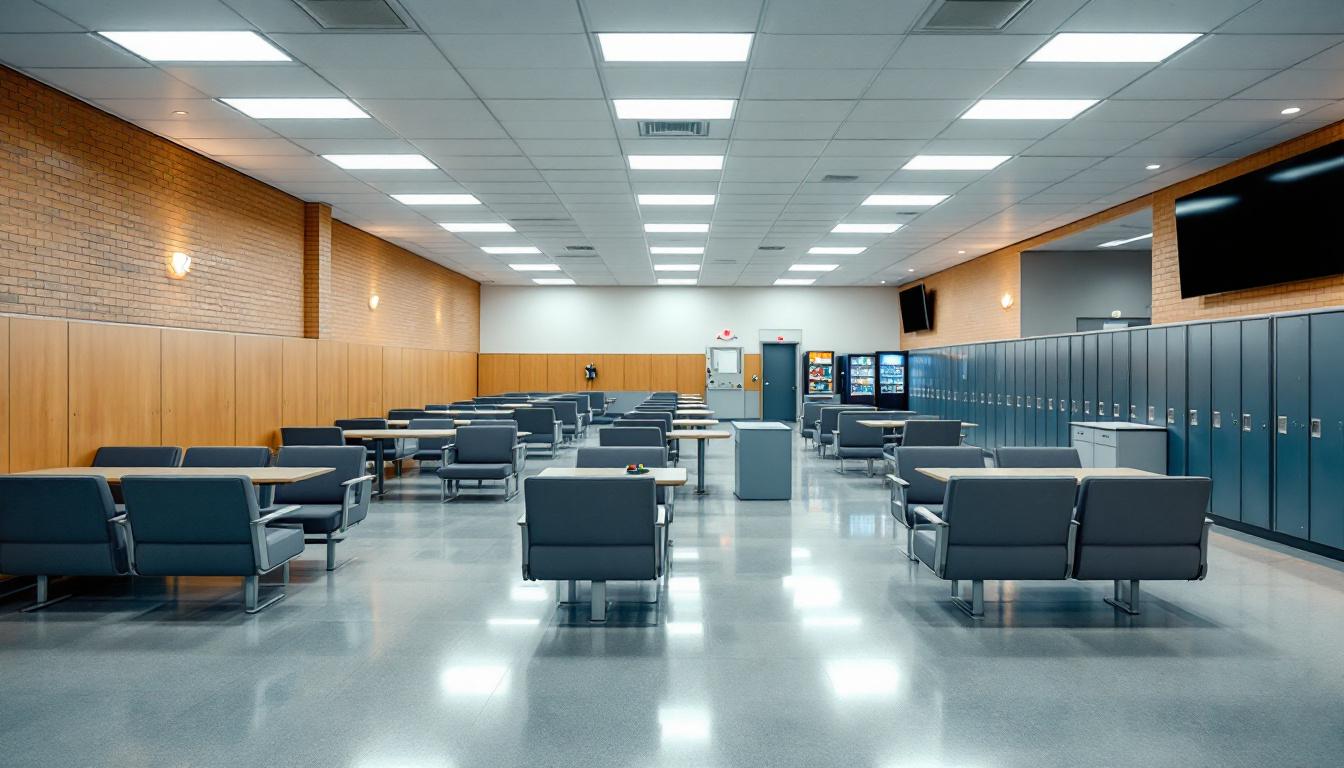
The housing units at Walker County Jail feature dormitory-style accommodations and individual cells that shape how inmates navigate their confined environment. Today, inmates follow structured schedules that begin with early morning counts and consistently move through designated meal times, work assignments, and recreational periods. The facility typically maintains predictable routines that help residents adapt to institutional life while managing the challenges of limited personal space and constant supervision.
Living conditions generally include shared sleeping areas or individual cells, depending on classification levels and available space. Inmates typically receive three meals daily in designated dining areas, with menu options that meet basic nutritional requirements. Personal property allowances usually include essential items like clothing, hygiene products, and limited personal effects that can be stored in assigned areas. Moreover, commissary services often provide opportunities for inmates to purchase additional food items, toiletries, and writing materials to supplement their basic provisions.
Structured programming schedules may include work assignments within the facility, such as kitchen duties, cleaning responsibilities, and maintenance tasks that provide inmates with daily structure and potential skill development. Recreation opportunities typically involve scheduled yard time, television viewing in common areas, and access to reading materials. Whereas daily routines remain consistent, visitation policies generally allow family members to maintain contact through scheduled visits and phone calls. These connections often provide crucial emotional support that helps inmates adapt to their environment while maintaining relationships with loved ones outside the facility walls.
Ready to Connect?
Start communicating with your loved one today
Search for an Inmate
